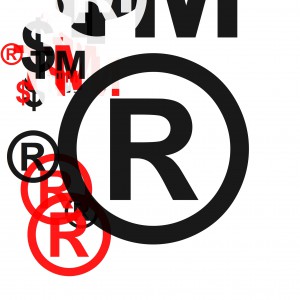October 21, 2014
 On September 3, 2014, the United States District Court for the District of Connecticut held that Lavatec Laundry Technology GmbH owns the exclusive rights in and to the trademark “LAVATEC” in the United States. The holding followed a week-long trial and over four years of litigation.
On September 3, 2014, the United States District Court for the District of Connecticut held that Lavatec Laundry Technology GmbH owns the exclusive rights in and to the trademark “LAVATEC” in the United States. The holding followed a week-long trial and over four years of litigation.
The Facts of the Trademark Infringement Case
The plaintiff, represented by Klein Moynihan Turco LLP, is a successor-in-interest to a German manufacturer of commercial laundry equipment. The German manufacturer created the name and trademark LAVATEC in 1986, and soon thereafter, incorporated a United States distributor entity. For the first years of its existence, only the German manufacturer parent company created any products and, as the district court found, “for the first four years of its existence, [defendant] did not control the use of the mark with respect to any goods.” (emphasis in original). The United States distributor subsidiary did interact directly with United States consumers and spend money on advertising in the United States, but ultimately did not control the use of the trademark or the quality of the goods stamped with the trademark.
In 2009, both the German parent manufacturer and the United States distributor subsidiary declared bankruptcy in their respective countries. The plaintiff in the action purchased the assets of the German parent manufacturer, and another entity (the defendant) purchased assets of the United States distributor subsidiary. Both the plaintiff and defendant claimed ownership in the LAVATEC trademark in the United States.
The Holding
At trial, plaintiff argued that it would prevail no matter if the district court applied either the “manufacturer/distributor” or “related companies” analysis to determine trademark ownership. Using the “related companies” doctrine, the district court found that the German manufacturer parent company was the first to use the LAVATEC trademark in commerce in the United States. In arriving at its ruling, the district court pointed out that any activities taken by the United States distributor subsidiary were always for the benefit of the foreign manufacturer parent and at no time did the parent company relinquish control of the LAVATEC trademark to the subsidiary distributor.
The defendant unsuccessfully argued that the subsidiary had obtained ownership of the trademark by virtue of the fact that it was “the face” of the brand in the United States and had spent money on advertising. Despite the subsidiary’s advertising expenditures and its United States customer contact, the district court ultimately held that “[a]t no time between the creation of the Lavatec name and the first sale of Lavatec products until its insolvency did [the German manufacturer parent] relinquish [its trademark rights]. Consequently, [defendant never] acquired any right of ownership in the mark, and plaintiff [], which acquired all of the intellectual property rights of [the German manufacturer parent], now holds the exclusive ownership of the mark in the United States.”
The district court is now considering the plaintiff’s motion for a permanent injunction. In the meantime, the parties have begun to engage in discovery for what should be a substantial monetary judgment against the defendant for its acts of trademark infringement.
Protect Yourself
Multinational corporations, by their nature, can leave themselves vulnerable to various intellectual property issues, including ownership of trademarks. Such corporations should retain experienced intellectual property attorneys to take the steps necessary to protect their interests in all jurisdictions.
If you are interested in learning more about this topic, or if you have been served with legal process relating to trademark infringement, please e-mail us at info@kleinmoynihan.com or call us at (212) 246-0900.
The material contained herein is provided for informational purposes only and is not legal advice, nor is it a substitute for obtaining legal advice from an attorney. Each situation is unique, and you should not act or rely on any information contained herein without seeking the advice of an experienced attorney.
Attorney Advertising



